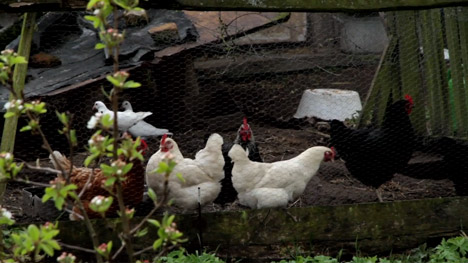It's that time of year again: when savvy citydwellers return to the comfort and convenience of their apartments and pick up where they left off before the perennial August slump. (I realize that not all of us—myself included—can afford to take a month-long holiday, but I, for one, felt like a true New Yorker when I realized that I'd skipped down for more sylvan environs for three weekends in a row.)

But why come back at all? Why do we feel bound to these inconceivably dense networks of assumed responsibilities and overstimulation? There are certainly advantages to settling en masse, living and working with and among our fellow urbanites... but what if there was an alternative? What if we could get off the grid for good? A possibility of escaping forever and never looking back?

Idealistic, for sure, but it's an ideal worth exploring, and Dutch architect Ton Matton is the man for the job. After he graduated from Delft Technical University, Matton spent much of the 90's at Rotterdam's Schie 2.0 office, an urban and environmental design studio, establishing himself as a proponent of autarkic (self-sufficient) and otherwise experimental architecture and urban planning. His more recent independent projects include everything from a bus filled with flora (a mobile nature reserve) to cutting the electricity to Wismar University, where he teaches, for a 24-hour period in December of 2009.

It's hard not to be charmed, if not inspired, by the Avant/Garde Diaries' recent profile of Matton, in which he explains his 'bird suburb' and 'climate machine,' among other concepts:
About ten years ago, Ton Matton stumbled upon a deserted schoolhouse in Wendorf, Germany, close to the Baltic coast, and quickly repurposed it as his "Werkstatt Wendorf," a place for experiments and unbounded thinking. A Dutch-born urban planner by trade, Ton moved to the countryside to break free from an everyday grind designing suburbs and performing uninspiring jobs. He now seeks inspiration from neighbors that are completely different than him, explores the area's Communist past, and lives a life predicated on the rhythms of nature. In the individualist mold of Henry David Thoreau, Ton questions social conventions and works out inventive solutions for new ways of living. "Am I an urbanist? Am I an architect? Am I an artist?" he asks. "I don't know [and] it doesn't matter anyhow." Ton provides insight into a life few are willing to commit to, and demonstrates the possibility of creating an alternative economy based on utility, creativity, and respect for people and the planet.
-Ton Matton


















